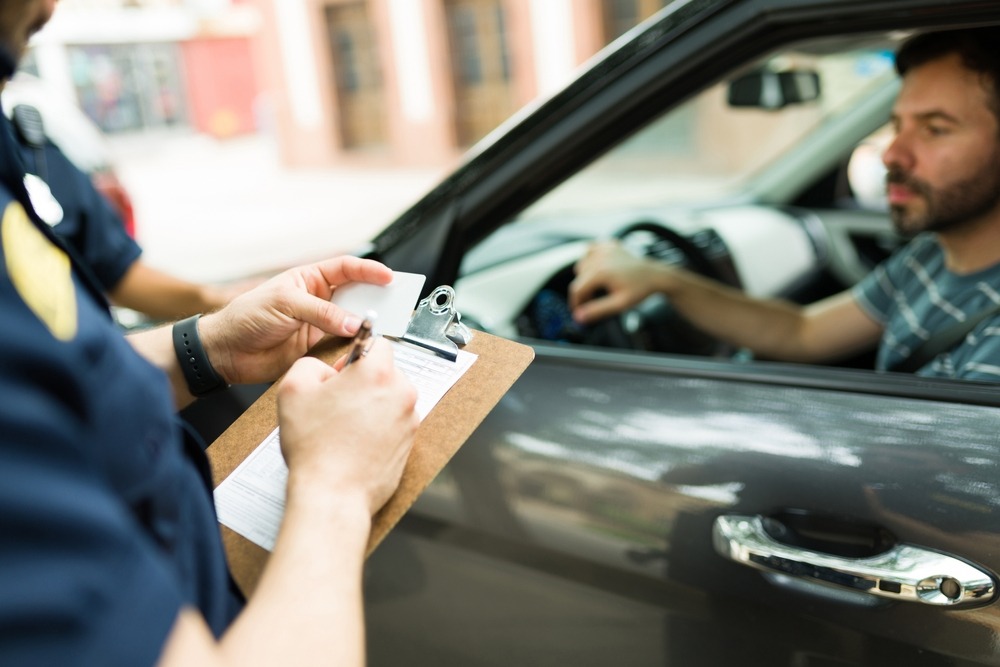Complete the form to schedule a free consultation with a traffic lawyer
Speeding Tickets and What They Really Mean for Drivers

Violation Impact Guide: Common Consequences of Speeding Tickets
Speeding tickets are one of the most common traffic violations in the U.S., but many drivers don’t fully understand their consequences. From increased insurance premiums to license points, the effects can be long-lasting. In this blog, we’ll explain what happens when you get a speeding ticket, how it affects your record, and what steps you can take to protect yourself.
Record and Cost Breakdown: How Speeding Tickets Affect You
A speeding ticket may seem like a minor inconvenience, but it can have serious financial and legal consequences.
Insurance Premium Increases
Insurance companies view speeding tickets as a red flag. Even one violation can result in a higher premium. On average, drivers see a 20–30% increase in their rates after receiving a ticket. Multiple speeding tickets in a short time can lead to much steeper hikes—or even non-renewal.
Points on Your License
Most states use a point system to track driving behavior. Speeding tickets typically result in 1 to 3 points depending on the speed over the limit and local laws. Accumulating too many points may lead to license suspension or mandatory traffic school.
Fines and Fees
In addition to base fines, drivers often pay administrative fees, court costs, and sometimes surcharges. Some areas even impose higher fines for speeding in construction zones or school zones.
Next Steps Guide: What to Do After a Speeding Ticket
Getting a speeding ticket doesn’t always mean you have to accept the penalty without question.
Contest the Ticket
If you believe the ticket was issued in error or the circumstances justify leniency, you can contest it in court. Successful defenses might include faulty radar equipment, obscured speed limit signs, or lack of proper officer procedure.
Consider Traffic School
In some states, eligible drivers can attend a defensive driving course to remove points or dismiss the ticket. This option can also help avoid insurance increases.
Pay the Fine (When Appropriate)
If your chances of dismissal are low and the violation is minor, paying the fine may be the simplest option. Just be sure to understand how it will affect your record and insurance.
Prevention Strategies Explained: How to Avoid Speeding Tickets
Avoiding speeding tickets starts with safer driving habits and a proactive mindset.
- Obey posted speed limits — even if traffic seems to be moving faster.
- Use cruise control on highways to maintain a consistent speed.
- Stay alert for changing limits in school zones, construction areas, or residential neighborhoods.
- Leave early to avoid rushing and the temptation to speed.
Driver Record Tips: Keep Your Record Clean and Premiums Low
Speeding tickets don’t just come with a fine—they can follow you for years in the form of higher premiums, added license points, and lost driving privileges. Understanding how to handle a ticket and how to avoid future violations can save you both money and stress. The best defense is safe, attentive driving every time you hit the road.
Take Action to Handle Speeding Tickets the Right Way
If you’ve been cited for speeding, don’t let it silently raise your insurance rates or jeopardize your driving record. Understanding how speeding tickets affect your coverage gives you the tools to respond strategically. From enrolling in traffic school to fighting the ticket in court or exploring lower-cost insurance options, you have choices that can reduce the long-term impact.
At Ticket Void, powered by Legal Brand Marketing, we connect drivers with experienced legal professionals who know how to challenge tickets, negotiate outcomes, and help you avoid unnecessary penalties. Our network is built to protect your record—and your wallet.
Contact us today to speak with a qualified traffic ticket attorney and explore your options. Acting now can make all the difference in maintaining lower premiums and a clean driving history.
Frequently Asked Questions
1. How long do speeding tickets stay on your record?
It depends on the state, but most tickets stay on your record for 3 to 5 years.
2. Can a speeding ticket increase my insurance rate?
Yes, even one ticket can result in a premium increase, especially for young or high-risk drivers.
3. Should I hire a lawyer for a speeding ticket?
For serious offenses or if you have prior violations, a traffic attorney may help reduce or dismiss the charge.
4. Can I take traffic school to remove a speeding ticket?
In many states, yes. Traffic schools can eliminate points or dismiss the ticket entirely for eligible drivers.
5. What happens if I ignore a speeding ticket?
Ignoring a ticket can result in additional fines, license suspension, or even a warrant for your arrest in some jurisdictions.
Key Takeaways
- Speeding tickets can increase insurance rates and add license points.
- Minor violations may seem harmless but have long-term financial effects.
- You can fight or reduce a ticket through court, traffic school, or legal help.
- Good driving habits are the best way to avoid speeding tickets.
- Always respond to a speeding ticket promptly to avoid harsher penalties.
Recent Posts
-
Which State Has the Strictest Laws for Drunk Driving?
-
Which State Has the Toughest DUI Penalties: Understanding DUI Penalties
-
Which State Has the Harshest DUI Laws? Expert Legal Guide to America's Strictest Penalties
-
Understanding the Strictness and Severity of State DUI Laws: A Complete State-by-State Legal Defense Guide
-
How Can You Lose Your CDL License? Critical Violations That End Commercial Driving Careers
